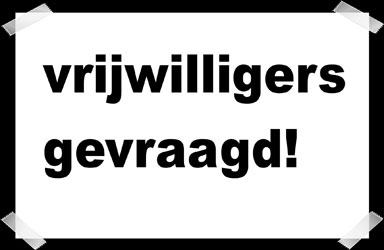 In het wetenschappelijke tijdschrift Patient Education and Counselling leveren Dr. Maes en Frank Twisk kritiek op een artikel van van Houdenhove (klik hier), waarin laatstgenoemde stelt dat de omgaan-met-of-herstel-vraag irrelevant lijkt/is, en dat patiënten op zoek moeten naar een nieuw evenwicht m.b.v. “een flexibele CGT-aanpak” (?).
In het wetenschappelijke tijdschrift Patient Education and Counselling leveren Dr. Maes en Frank Twisk kritiek op een artikel van van Houdenhove (klik hier), waarin laatstgenoemde stelt dat de omgaan-met-of-herstel-vraag irrelevant lijkt/is, en dat patiënten op zoek moeten naar een nieuw evenwicht m.b.v. “een flexibele CGT-aanpak” (?).
Maes en Twisk daarentegen betogen dat de “behandeling” niet gericht moet zijn op “psychosociale barrières die de patiënt weerhouden van een nieuw evenwicht” en CGT(/GET), maar op immunologische afwijkingen (inflammatie etc.), infecties en de gevolgen van (permanente) activering van het afweersysteem (nitrosatieve stress, channelopathie etc.)
Treatment of myalgic encephalomyelitis/chronic fatigue syndrome (ME/CFS), a multisystem disease, should target the pathophysiological aberrations (inflammatory and oxidative and nitrosative stress pathways), not the psychosocial “barriers” for a new equilibrium.
Patient Educ Couns. Available online 19 March 2010. doi: 10.1016/j.pec.2010.02.017.
Michael Maes, Frank N.M. Twisk.
Received 4 November 2009
published online 19 March 2010.
Abstract
In a recent article published by B. van Houdenhove and P. Luyten
it is claimed that cognitive behavioral therapy and graded exercise therapy (CBT/GET)
are evidence based and are the most adequate treatments
to control symptoms and improve quality of life
of patients with myalgic encephalomyelitis/chronic fatigue syndrome (ME/CFS).
However, these authors do not disclose that
their own treatments at the Belgian CFS Reference Centers with CBT/GET
have proven to have no clinical effects.
The Belgian minister declared in the parliament that
CBT/GET at those centers are no curative therapies.
Even more, measured by objective standards
the CBT/GET approach has shown to be counterproductive.
van Houdenhove and Luyten neglect or deny all scientific findings on
the pathophysiology and possible medical treatments of ME/CFS.
However, there is now a consensus that
inflammatory and oxidative and nitrosative (IO&NS) pathways
underpin the pathophysiology of ME/CFS in humans and in animal models as well.
Human and animal data show that
treatments which target IO&NS pathways
are useful in treating ME/CFS.
van Houdenhove and Luyten also propose that
the time has come to shift treatment research in CFS
from efficacy studies to effectiveness studies in ‘real life’.
In our opinion, future research should use a high throughput screening,
made possible by the translational approach,
in order to
further examine the IO&NS pathways in detail;
further delineate novel drug-targets in the IO&NS pathways and
develop new drugs to treat this complex and serious medical disorder.
Keywords:
ME/CFS, Inflammation, Oxidative stress, CBT/GET, Cognitive behavioral therapy, Graded exercise therapy
http://www.pec-journal.com/article/S0738-3991%2810%2900051-0/abstract





